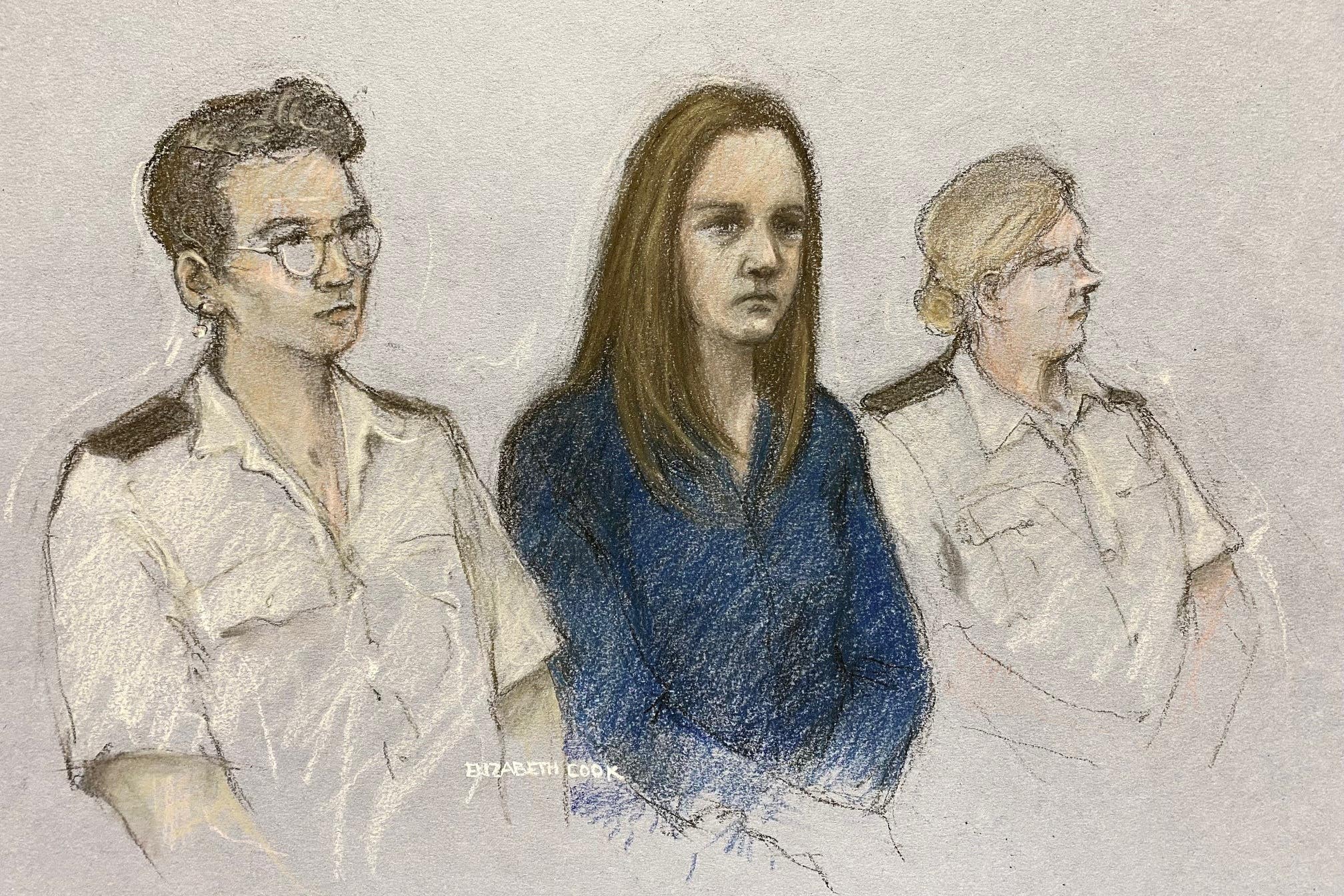Why was Lucy Letby allowed to inflict one last wound on her victims?
Letting the killer nurse hide in her cell rather than face bereaved families in court was a disgrace – and a final act of wickedness, writes John Wright


The headline, “Nurse found guilty of murdering seven babies” should have read, “Nurse found guilty of murdering seven babies sentenced while absent” – the whole truth.
Yes, the waiting public needed to know that a murderer had been rightly found guilty of her crimes, yet Letby was not in court today to hear her sentencing. Why not? Why was she allowed to inflict one last wound on the families of the babies she murdered?
Some 110 hours, the jury deliberated. Letting the killer nurse hide in her cell rather than face bereaved families in court was a disgrace – and a final act of wickedness.
The Crown Prosecution Service, of all people, seems to offer endless ways for defendants to escape these verdict/sentencing court appearances in their “Defendant’s refusal to attend Court (Legal Guidance) of September 23, 2022: There may be a good reason or a reason which bears further investigation, for instance, a prisoner’s proven or claimed ill health,” they say.
It should be a matter of course that guilty defendants face their victims’ families. They have all turned up for one reason: to witness the realisation of the effects of their actions, perhaps even to seek shame. Even if the culprits remain stony-faced, at least the families can be sure they’ve had the chance to express the devastating emotional impact of their crime. It may even help them find closure.
Alternatives such as video links are simply not good enough. The families who lost their babies have both the need and the right to be able to look Lucy Letby in the eye, even if she isn’t brave enough to do the same.
This trend for evading sentencing is also evident in the murderer of six-year-old Arthur Labinjo-Hughes, Emma Tustin, who also refused to go to court. Mark Brown, who killed Leah Ware and Alexandra Morgan at a farm near St Leonards, East Sussex didn’t turn up at Hove Crown Court to face the victims’ families face to face, either.
And in 2022, Koci Selamaj didn’t attend his sentencing for murdering school-teacher Sabina Nessa in South East London. Neither did murderer Anthony Russell at Warwick Crown Court; nor Jordan McSweeney, who murdered Zara Aleena, the judge saying it demonstrated that he had “no spine whatsoever”, while his barrister, astonishingly, told the court that McSweeney knew CCTV footage would be played and he didn’t want to “relive” the incident. Poor thing.
The list goes on: this year’s no-shows including murderer Lee Peacock, who refused to attend the Old Bailey in February for killing his girlfriend, Sharon Pickles, and Clinton Ashmore. In March, Daniel White, who killed his wife Angie in Swansea – and Thomas Cashman, the murderer of nine-year-old Olivia Pratt-Korbel – similarly refused to leave their cells for sentencing.
Letby managed to avoid facing the music twice – both for the verdict and now the sentencing. The obscenity of this quiet withdrawal from responsibility will surely turn stomachs.
Might it also be enough to prompt our judges and lawmakers to show a bit of backbone, in future? Making perpetrators accountable for their actions is important. And the only way to do that is by making sure they do attend court for verdicts and sentencing – by using force, if necessary. None of those mentioned are a stranger to that.



Join our commenting forum
Join thought-provoking conversations, follow other Independent readers and see their replies
Comments